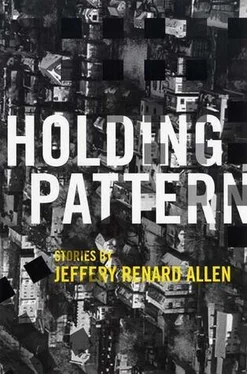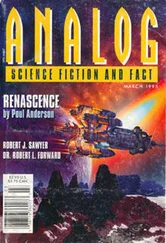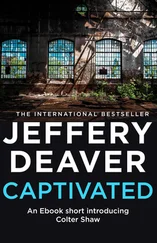Glory was clean and neat and kept her low brick house and even concrete walkway clean and neat. Trees stretched their branches over a grassy lawn. Lincoln would walk in the yard, wind whipping the branches, and touch rough bark or the dry twigs of a hedge. He mowed the lawn and trimmed the bushes. This fine yard was fronted by a tall black wrought-iron fence. Here, Lincoln never allowed the images of the world to reach his heart. Forever vexed by questions he held in the full lens of his mind, burning, a clarifying hate swelling inside him that fueled new ideas and questions.
Though he hoped to shape his twenty-year diary of ponderings and reflections into a memoir, The Autobiography of Black Life , the last nine years had seen him produce nine novels about Henry “Hard Rock” Henson, the H-Man, a renegade black grunt in Vietnam. Hard Rock, Hard for short, lived a creed of illimitable ferocity. Hard knew the jungle like a private estate he had drafted and constructed. He would kill an officer (usually white) just as quickly as he would a gook. He greased his bullets with spit and spit with bullet force.
Though Lincoln had never seen the war, he had read dozens of books and articles about Vietnam. He wrote under the nom de plume the General, and his publishers marketed and promoted the novels as the fictionalized memoirs of a former high-ranking officer of the war who had to remain anonymous, for obvious reasons, offering in place of an author’s dust-jacket portrait a stylized print showing a military uniform sprawled upon and crumpled across a bed like cast-off skin. Controversial and sure to sell in these times. And sell it did, the fire of Lincoln’s words spreading throughout all of the major book clubs and finding an equally broad audience with servicemen and servicewomen in all branches of the military, who saw the General as a soldier’s Ann Landers, Oprah Winfrey, or Miss Lonelyhearts. They wrote him volumes of letters about their most intimate problems. Once a week, Lincoln’s publishers would forward him a sack or two of mail, and he would read each letter slowly and carefully, notepad and pen at the ready, logging important names, details, and events, compiling rap sheets and packets of data for future reference.
The previous week, Lincoln had received an anonymous letter informing him of Emmanuel’s death. According to the letter, several white MPs had not taken kindly to the honorary certificates and demanded a stop. Emmanuel told them to kiss where the sun don’t shine. The following day, the association found him floating in the swimming pool. His eyes had popped out of their sockets, but someone had bleached them clean of blood and tried to force them back in.
Lincoln had penned two chapters of his tenth novel, but a deep feeling told him that he would never complete it. He had in the back of his head a sense of impending punishment. Lately, he sensed something coming together in strangeness, something that only increased the hopeless gulf he felt between his past and his future. There was a stone on his chest and an even heavier stone deep inside him, weighing him down. And now, as he walked, he could hear the stones knock, could feel himself sinking, despite his strong body. Tomorrow he would be thirty, but his power to save himself had already faded from his muscles.
Reaching the corner, Lincoln looked at his watch. Eight thirty a.m. Unbeknownst to him, at that very moment another man, from the apartment complex five blocks south, committed suicide when he ran onto the Eisenhower Expressway and was struck by a Cleaning Magic diaper-service truck — a pilot without a flight plan, riding a rainbow’s arc fifty feet above the expressway — in virtually the same spot where Lincoln would be struck the following morning. Second morning, second truck. The two men were strangers to one another, but the same womb had borne them both. It was only at the moment of his death that Lincoln Roosevelt Lincoln realized the conspiracy against him. Two men unaware, moving toward the same fate, in the same city. A spider retracting two threads into the center of its web.
Lincoln observed a traffic cop directing two phalanxes of moving steel, one northbound, the other southbound. Even from where he stood, Lincoln could tell that the cop’s skin was rough, like a stone worn away by water. His uniform shone a navy blue and he held his head high, a cap on top. Lincoln moved closer, saw the cop’s tiny buckshot eyes, heard a voice loud enough to wake the dead. The cop closed his eyes with every shout, carried away by deep emotion. Keep moving. Open. Keep moving. Shut. That’s green, not greens. Don’t stop to eat. That yellow ain’t no chicken. That red ain’t no wine, so don’t you whine. So lucky God didn’t make me a cabdriver.
At the next corner Lincoln saw a boy as tall as him, only leaner. Shoe shine, brother? the boy asked.
Lincoln accepted the offer.
The boy put black polish on the edges of his fingers, then moved his hands over Lincoln’s cordovans, the pointed toes like weapons. Soon, the boy was slapping and rubbing a rag against them.
Brother, you know those white men are devils. He popped the rag.
Lincoln didn’t say anything.
Bent over at the waist, the boy kept his legs locked straight, careful not to get any polish on his short-sleeve white dress shirt. He wore a black tie — snake-tongue thin — jeans, and Nike gym shoes. He had wonderfully clear skin, but his nose was pushed back into his face as if recoiling from some foul odor. So that no one might miss it, his body emitted the peculiar sweet and powdered smell of a baby.
Lincoln was about to enter the yard, when Glory called him.
See my hands? She removed her gloves.
Yes, ma’am.
I got frostbitten when I was a baby.
Yes, ma’am.
See these arms? She rolled up her sleeves.
Yes, ma’am.
I got burned when I was a baby.
Yes, ma’am. Lincoln pressed back into the squeezing dark of the hall, smiling to himself.
I may be short and fat, but I knows my wings gon fit me well.
Yes, ma’am.
He got a white robe for me.
Yes, ma’am.
He got me a seat up in the kingdom.
Yes, ma’am.
He got me a bed in the upper room.
Yes, ma’am.
I will walk on golden clouds, hand in hand with my Jesus. O flesh of my flesh!
Nothing but devils. The boy lifted his head and looked up into Lincoln’s face, eyes bright with the memory of some deed.
They were standing on the corner of Congress Avenue, Lincoln facing the street, the steel wall of the Garden Tower Apartments behind him. He loved corners. Here, the world was going on, and he was there to perceive it.
What do you think of the white man?
The only white man Lincoln gave a damn about was Jesus, the Holy Redeemer, the man who had appeared to Glory in a dream. Chop off that nigger’s dirty dick, Jesus said, and to thee all things shall be added.
Was Jesus a white man? Lincoln asked.
Yes, Glory said. Unless he’s passing.
Glory hated white folks. God is black, she said. She sought out TV shows that featured white people being maimed or killed. She cheered every death, every gunshot. And whenever she watched news broadcasts and saw that a white person had died in a car accident or a plane crash or by falling glass, she would bow her head and say, Thank you, Jesus. Thank you. We are surely God’s chosen people. At night, Lincoln heard her pray for God to put ground glass or spiders in every white person’s buttermilk. He never discovered the actual source of her hatred, and at the time of her death, Jesus remained the only white man she liked.
Brother, what do you think about the white man?
I don’t know, Lincoln said.
What? The boy scrunched up his face in disbelief. What?
Читать дальше












